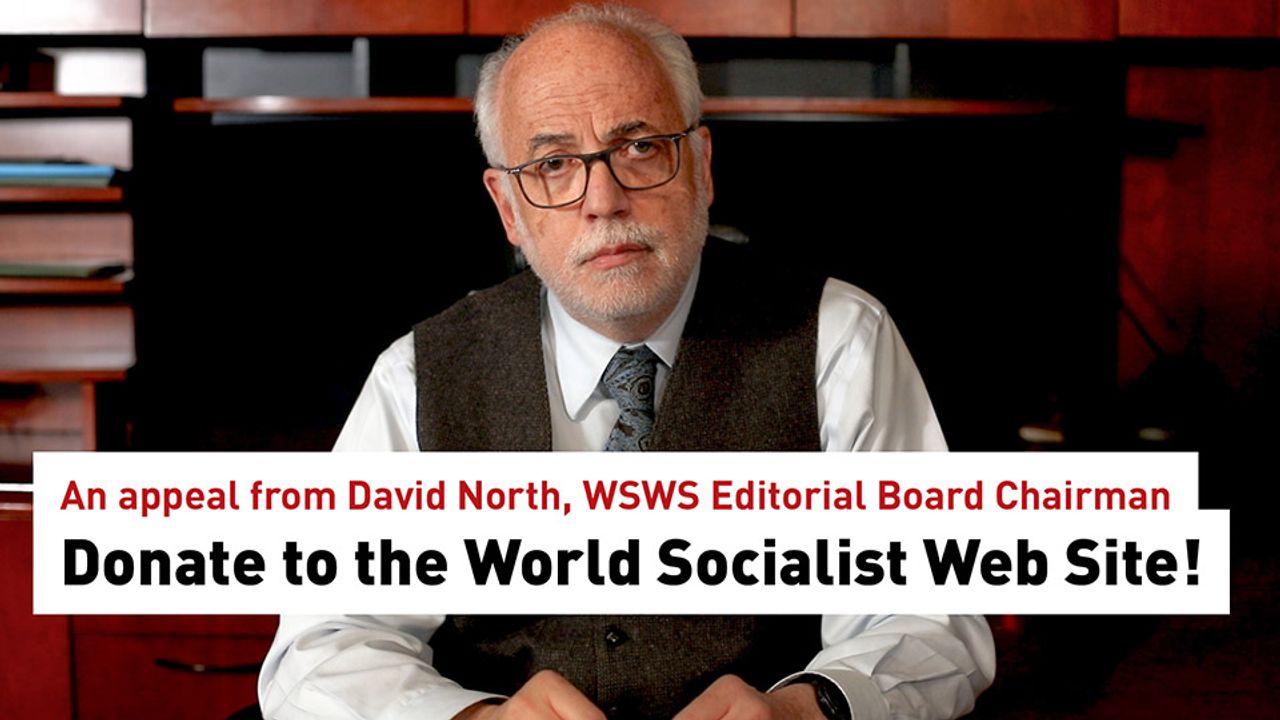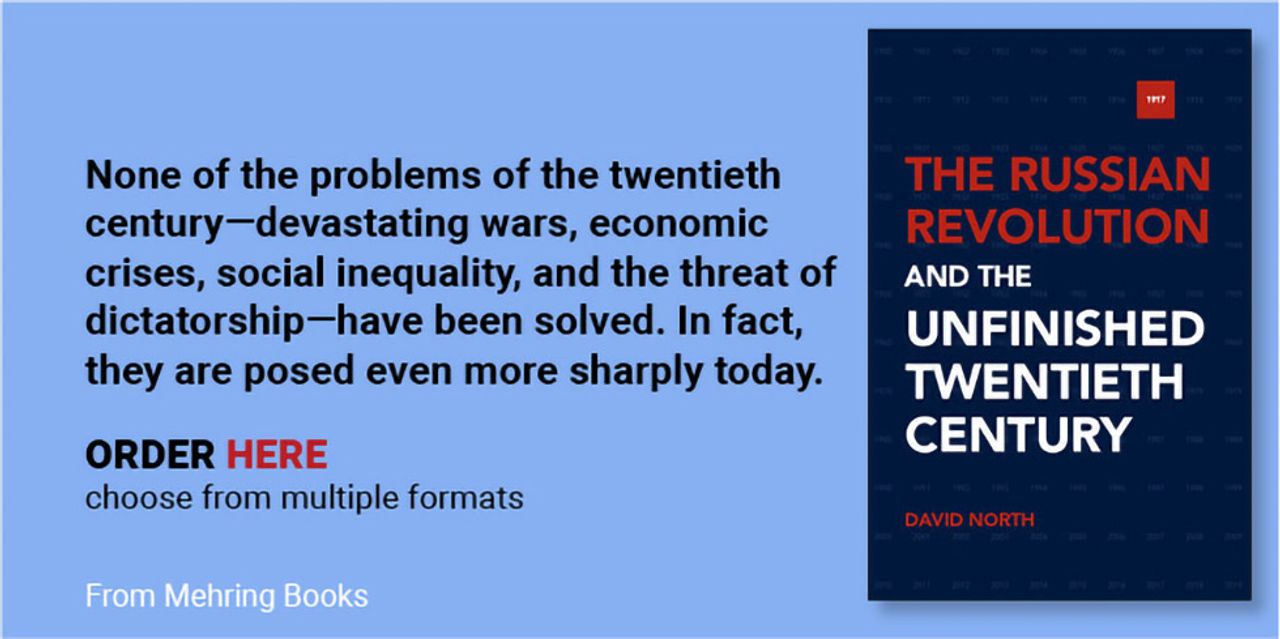Alex Lantier
The French government of banker-turned-President Emmanuel Macron is preparing for a major confrontation with “yellow vest” demonstrations and other protests this weekend, as the political crisis gripping the French state intensifies.
The interior ministry is planning to deploy 89,000 riot and military police throughout the country on Saturday, including 8,000 in Paris, backed by armored cars in the streets of the capital for the first time since 2005. This follows the positioning of snipers on Paris rooftops during last Saturday’s protest. Police are trying to intimidate protesters with threats that they expect fatalities and more arrests than at all the previous protests combined.
In a desperate attempt to play for time, the Macron government postponed and then announced the cancellation of the fuel tax that provoked the initial protests. However, anger continues to grow, bringing in broader sections of the population motivated by a diverse set of class issues. Demands for wage and pension increases, taxing the rich, and for a redistribution of wealth are spreading.
On Thursday, thousands of high school and university students participated in protests against education reforms and tuition increases. Police responded with repression and over 700 arrests. One video broadly shared online showed police rounding up students, whom they forced to kneel, some against a wall, in rows of dozens. This is just a preview of the state crackdown that will be meted out this weekend.
As the French government prepares a massive police-state crackdown, it is absurdly denouncing protesters as a danger to democracy. The Élysée presidential palace yesterday called on “political parties and trade unions, the business community to appeal for calm” and declared that it is “no longer time for political opposition, but for unity around our Republic.” Prime Minister Edouard Philippe said that protests threaten “the safety of the French people and our institutions.”
After Macron recently hailed Philippe Pétain—France’s Nazi-collaborationist dictator during World War II—he is in no position to lecture anyone about democracy. The danger to democracy comes not from the struggles of workers and youth against the dictates of the banks, but from the capitalist ruling elite, represented by figures like Macron, cowering behind his phalanxes of riot police and tanks.
With the development of the protests, the basic class issues are coming to the fore. The New York Times, in a worried article published Thursday, noted that the protests in France are “not tethered to a political party, let alone a right-wing one.” Instead, “The uprising is mostly organic, spontaneous and self-determined. It is mostly about economic class. It is about the inability to pay the bills.”
It is the fact that the protests emerged outside of the existing institutions, including the trade unions, that has lent them an explosive character. Responding to the widespread support for the protests among workers, unions have called limited strike actions for next week. However, the aim of the unions, which have the closest connections to the state, is to contain and corral the movement, and thereby bring it under control.
Macron has no intention of acceding to the demand for social equality and a redistribution of wealth that are driving the protests. The actions of the government are dictated by the class interests that it represents and by the demands of the global markets and financial institutions.
Developments within France are a national expression of a global process. In every country, the ruling class is seeking to enforce a new round of attacks on wages and working conditions. However, the growth of the class struggle—propelled by grotesque levels of social inequality—is also developing as a global process.
It is to the international working class that French workers and youth opposed to Macron must turn for support!
The past year has been characterized by a significant intensification of class conflict around the world. The year began with protests by Iranian workers against social cuts, followed by strikes in Europe for wage increases by Turkish and German metalworkers. In the United States, teachers struck in defiance of the union bureaucracy, followed by teachers in Britain, Tunisia and France.
Strikes in France against Macron’s privatization of the National Railways broke out, together with student protests against Macron’s regressive education reforms. Workers in countries across Europe struck against Ryanair, and workers internationally struck against appalling working conditions at Amazon, run by the world’s richest man, Jeff Bezos.
The year is coming to an end amidst growing working-class anger internationally. After an explosive protest by tea plantation workers in Sri Lanka last month, organized on social media to demand a 100 percent wage increase, the tea plantation workers are mounting strike action despite union opposition. Anger is building among US auto workers, as the unions and corporate management jointly plot mass layoffs and plant closures as part of a global restructuring of the auto industry. And, largely unreported in the media, strikes involving hundreds of thousands of workers are shaking South Korea, Chile and other countries.
In its 1988 world perspectives resolution, the International Committee of the Fourth International pointed to the implications of the globalization of capitalist production for the development of the class struggle: “It has long been an elementary proposition of Marxism that the class struggle is national only as to its form, but that it is, in essence, an international struggle. However, given the new features of capitalist development, even the form of the class struggle must assume an international character. Even the most elemental struggles of the working class pose the necessity of coordinating its actions on an international scale.”
Developments are now confirming this prognosis. For the working class, this raises critical strategic questions. Anger and opposition are not sufficient. The working class needs organization and a political perspective .
To coordinate their struggles, workers need their own organizations, completely independent of the pro-capitalist trade unions. The Parti de l’égalité socialiste (PES) calls on French workers and youth to immediately form committees of action in every workplace, neighborhood and school. These committees must unify the struggles now unfolding, prevent them from being dissipated and sold out, and organize actions to protect workers from repression.
In France, these committees would allow the “yellow vests,” largely drawn from rural and provincial city workers, to unify with the broadest sections of the working class, including immigrant workers in the suburbs of France’s largest cities, and to fight racist attempts to divide workers along ethnic lines.
The development of independent organizations of working-class struggle is inextricably connected to the building of a revolutionary leadership. In France and every country, the basic task facing the working class is the same—the overthrow of the capitalist system through the conquest of state power, the expropriation of the corporate and financial elite, a massive redistribution of wealth and the socialist reorganization of economic life.
The most critical issue of all is the construction of a Marxist leadership in the French and international working class. Only this way will the mass movement be able to acquire a consciously socialist character, opposing capitalism and war, and posing the question of the transfer of state power to the working class.


No comments:
Post a Comment